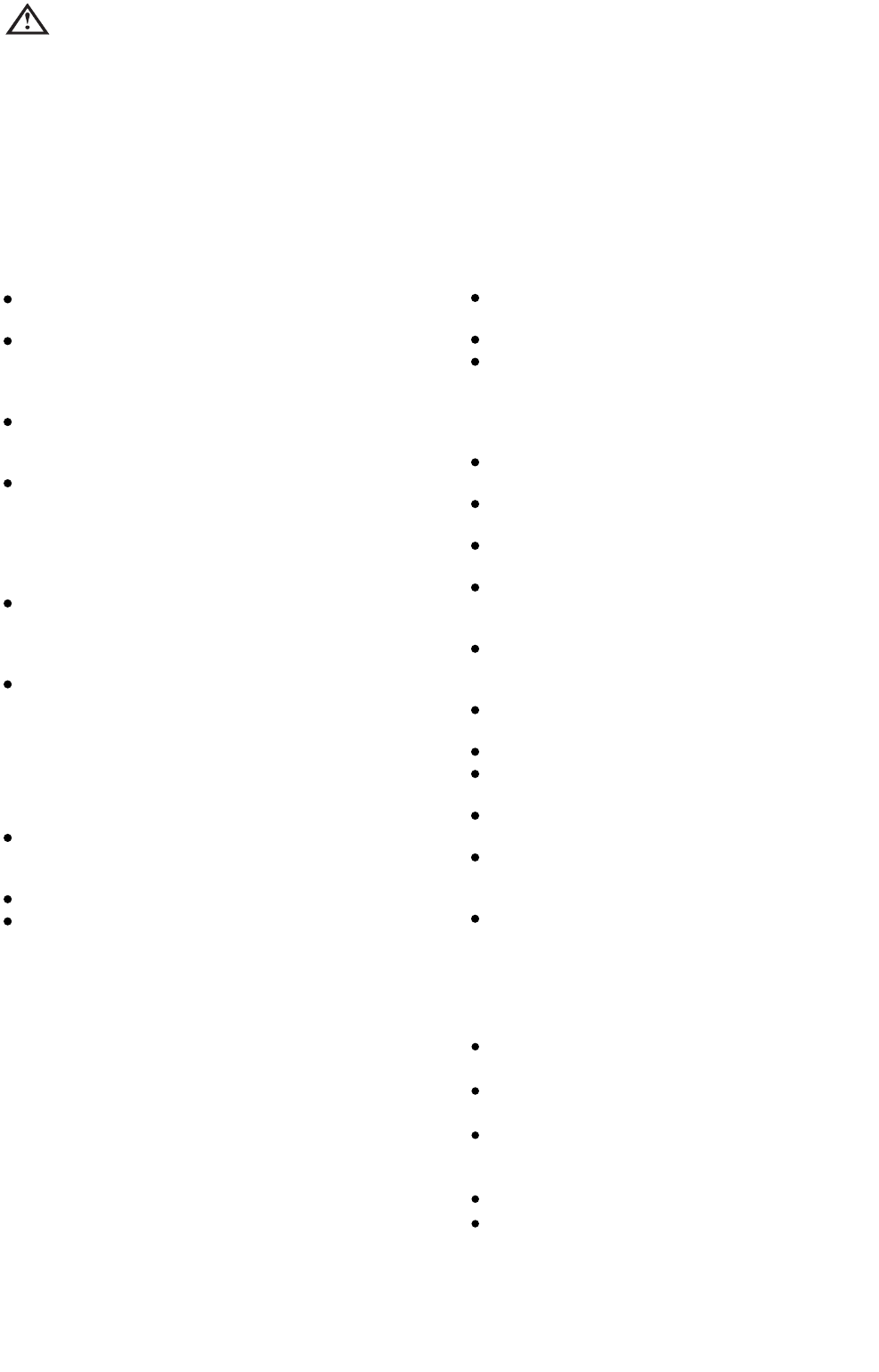
2
Important safety information
Use
This appliance is designed for domestic use only,
specifically for the storage of edible foodstuffs only.
It is not intended for commercial or industrial use.
Containers with flammable gases or liquids can leak at
low temperatures. Do not store any containers with
flammable materials, such as spray cans, fire
extinguisher refill cartridges etc. in the refrigerator or
the vicinity of the refrigerator or any other appliance.
Frozen food should not be refrozen once it has
thawed out.
Do not place carbonated or fizzy drinks in the freezer
compartment.
Ice lollies can cause frost/freezer burns if consumed
straight from the freezer compartment.
Do not remove items from the freezer compartment
if your hands are damp/wet, as this could cause skin
abrasions or frost/freezer burns.
Bottles and cans must not be placed in the freezer
compartment as they can burst as the contents
freeze.
Manufacturers recommended food storage times
should be adhered to.
Refer to the relevant instructions.
Do not use electrical appliances inside the
Refrigerator.
Store pre-packed frozen foods in accordance with the
frozen foods instructions and use by date.
When cleaning or taking out frozen foods or the ice
tray do not use sharp, pointed or hard devices, as they
can cause damage to the appliance.
Do not damage the refrigerant circuit.
Child safety
This appliance is designed to be operated by adults.
Children should not be allowed to tamper with the
controls or play with the product.
Keep all packaging well away from children.
When the appliance is to be scrapped, cut off the
electrical supply cable and destroy the plug with the
remaining cable. Disable the door catch in order to
prevent children from becoming trapped inside while
playing.
Installation
This appliance is heavy. Care should be taken when
moving it.
Check your Fridge Freezer for any transport damage. Do
not connect the appliance if there is damage. If the Fridge
Freezer is damaged, you should contact the John Lewis
branch from which you purchased it.
Any electrical work required to install this appliance
should be carried out by a qualified electrician or
competent person.
Care must be taken to ensure that the appliance does
not stand on the electrical supply cable. If the supply
cable is damaged it must be replaced; contact our
extended warranty administrators on 08700 107 887
who will give you details for your local Service Force
centre.
Parts, which heat up, should not be exposed.Whereever
possible, the back of the appliance should be close to a
wall, but leaving the required distance for ventilation, as
stated in the installation instructions.
This appliance should be left for 2 hours after installation
before it is turned on, in order to allow the refrigerant to
settle. Before switching on the Fridge Freezer ensure that
the interior light bulb and cover are in position. Do not
connect the appliance if they are not.
It is most important that this instruction book should be retained with the appliance for future reference.
Should the appliance be sold or transferred to another owner, or should you move house and leave the
appliance, always ensure that the book is supplied with the appliance in order that the new owner can get
to know the functioning of the appliance andthe relevant warnings.
These warnings have been provided in the interest of safety. You MUST read them carefully before
installing or using the appliance.
If you are unsure of the meaning of the these warnings contact the John Lewis branch from which you
purchased the appliance.
Safety precautions for
isobutane
Warning
The refrigerant of the appliance is isobutane (R600a)
that is inflammable and explosive to a greater extent.
Keep ventilation openings, in the appliance enclosure
or in the built-in structure, clear of obstruction.
Do not use mechanical devices or other means to
accelerate the defrosting process, other than those
recommended by the manufacturer.
Do not damage the refrigerant circuit.
Do not use electrical appliances inside the food storage
compartments of the appliance, unless they are of the
type recommended by the manufacturer.


















